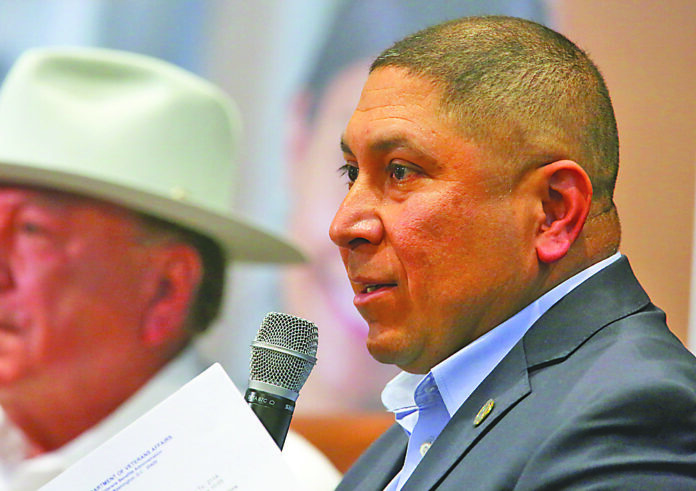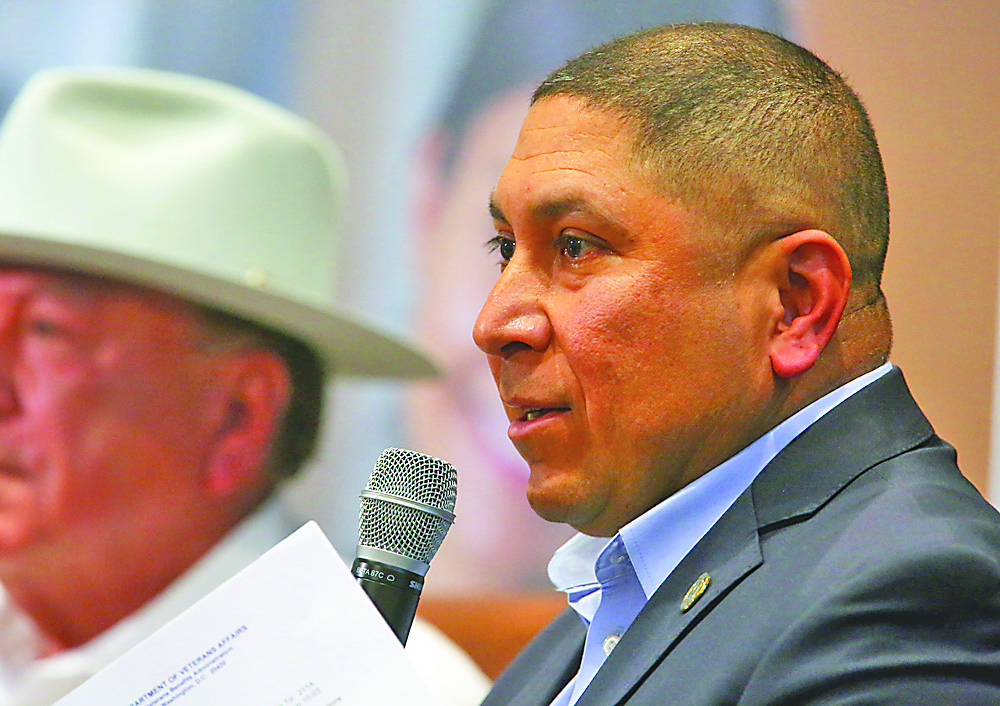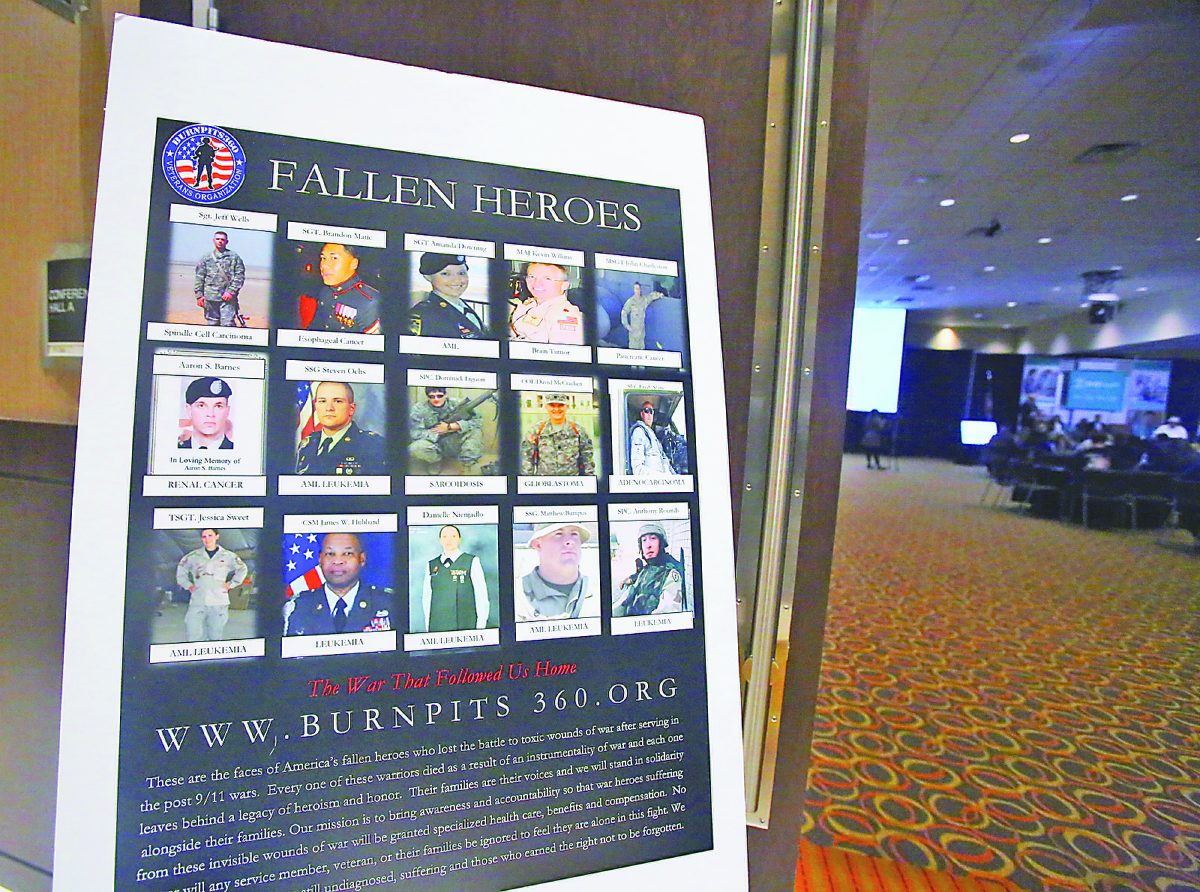
EDINBURG — When it comes to ailments affecting veterans of the armed forces, illnesses caused by burn pits receive relatively little attention. But lawmakers on both the federal and state level are hoping to address the issues through recently filed bills.
U.S. Rep. Joaquin Castro, D-San Antonio, and state Sen. Juan “Chuy” Hinojosa, D-McAllen, have both filed bills this session that would expand burn pit registries — lists that track veterans who were exposed to burn pits during their service along with their diagnoses. The registries would help establish a correlation between exposure to burn pits and those diseases.
Castro filed two bills, the first of which would expand the burn pits registry.
“One of the problems is that if a service member dies, a family member — a surviving spouse, a surviving parent, sibling and so forth — is not able to add that veteran’s name to the registry,” Castro said during a Saturday discussion on the issue. “Part of the reason that’s important is so that we have a better understanding of the medical conditions that these veterans are suffering from.”
His second bill would create a specific medical code within the Department of Veterans Affairs that would pave the way for medical coverage of obliterative bronchiolitis, a condition often associated with exposure to burn pits.
The discussion, which included Hinojosa along with U.S. Rep. Vicente Gonzalez, D-McAllen, was hosted by Burn Pits 360, a nonprofit veterans organization founded by a U.S. Army veteran, Le Roy Torres, and his wife, Rosie Torres.
“The ultimate goal for us is to get the specialized healthcare for veterans that have been affected,” Rosie Torres said. “Right now, there’s this system of delay and deny and we’re having to go to outside agencies to access specialized healthcare, and so the end goal is to get VA to recognize the correlation between the illnesses…and the actual deaths and diseases.”
Le Roy Torres developed obliterative bronchiolitis which, although compensated by the Social Security Administration, is not compensated because no medical code exists within the VA.
“So even though he has a diagnosis, he’ll never get compensation for it, you have to find a loophole,” Rosie Torres said.
The disease ended his career as a state trooper and placed the couple in financial distress, causing them to almost their house, she said.
“This is why we’re having this today,” Le Roy Torres said, “so those that are affected should not be afraid to go to their employers and get the right help, and they should not be afraid to lose their job.”
At the state level, Hinojosa filed a bill that would create a burn pit registry in the state. Hinojosa had filed a bill to create a registry during a previous legislative session in 2017. The bill passed the Texas House of Representatives but failed in the Senate.
Hinojosa, a Vietnam War veteran, compared burn pit exposure to that of Agent Orange, a chemical used during the war which caused cancer and other ailments to veterans who had been exposed to it.
“It took a lot of work and advocacy and education to finally get the federal government to recognize Agent Orange as a health issue caused by the chemicals that were used in Vietnam,” Hinojosa said.
Castro said the bills he filed had bipartisan support and was optimistic about their prospects.
“It defies common sense to think that you could have these burn pits, where you’re throwing in diesel and fuel and metals and plastics and so forth, and have folks that are operating a few yards or a few feet away for hours and hours and that not have an effect on their bodies,” he said.
“I think there’s no reason why somebody should be against this; it’s not a partisan issue.”







